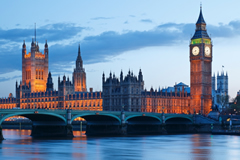Lancashire will be a key area in deciding who will form the next government, with a number of marginal seats to be fought in the county at the polls in May.
At this moment in time all the polling evidence suggests that we are heading for another ‘hung’ parliament with none of the two ‘big’ parties pulling up any trees at the moment; the Tories obsessed once again with the issue of Europe, and Labour being led by a man that is clearly struggling to impose himself in the minds of the electorate as a potential Prime Minister.
For the Liberal Democrats the Coalition agreement has proved to be an unmitigated disaster, and for all their protestations about their input into policies surrounding the low paid, the green agenda and, indeed, the economy, the perception voters have of Nick Clegg & Co is of a party that sold its soul for a whiff of the red ministerial boxes. The tuition fees U-turn effectively killed them.
Labour had hoped to pick up the majority of Lib Dem discontents, and win the election by simply adopting a more traditional social democrat, safety first approach that would enable them to hit the 35% of the vote mark, which would give them a small, but workable, majority.
They had not factored in the backlash to traditional politics that we are witnessing at the moment, nor the fact that they are likely to lose a significant number of ‘safe’ seats themselves north of the border to the Scottish Nationalists.
The Tories will lose votes, if not seats, to UKIP, that may lead to them missing out on some of their target constituencies, and who knows how other minority parties like the Greens and even Plaid Cymru will perform.
It all means that just seven months out from the election, we really have no clue as to the type of government we will have in place next year. The lack of genuine, consistent leadership from either Cameron or Miliband makes it a wide open race, and that means that every vote will count, particularly in this part of the world. Expect a series of high profile visits from Ministers and Shadow Ministers over the next few months – and then sit back and watch as Alex Salmond becomes the Deputy Prime Minister in the next Coalition that is cobbled together post May.







